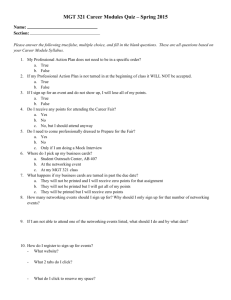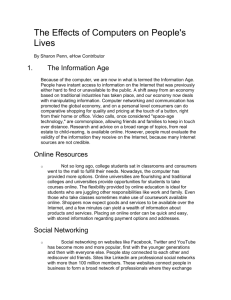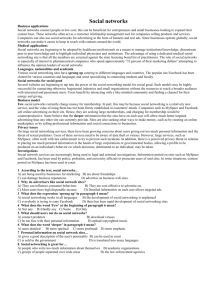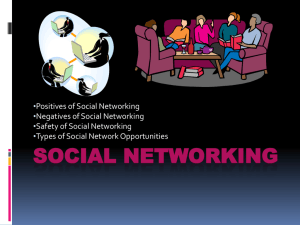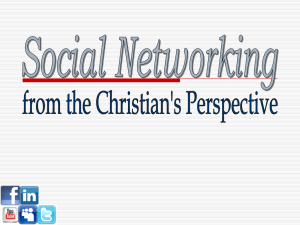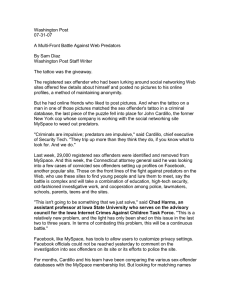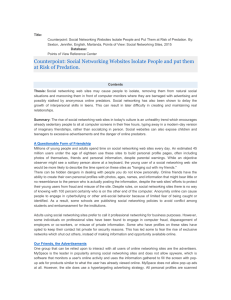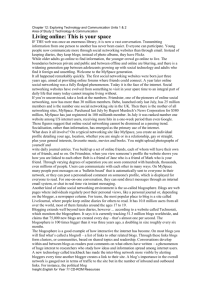Danger Online Reading Passage
advertisement
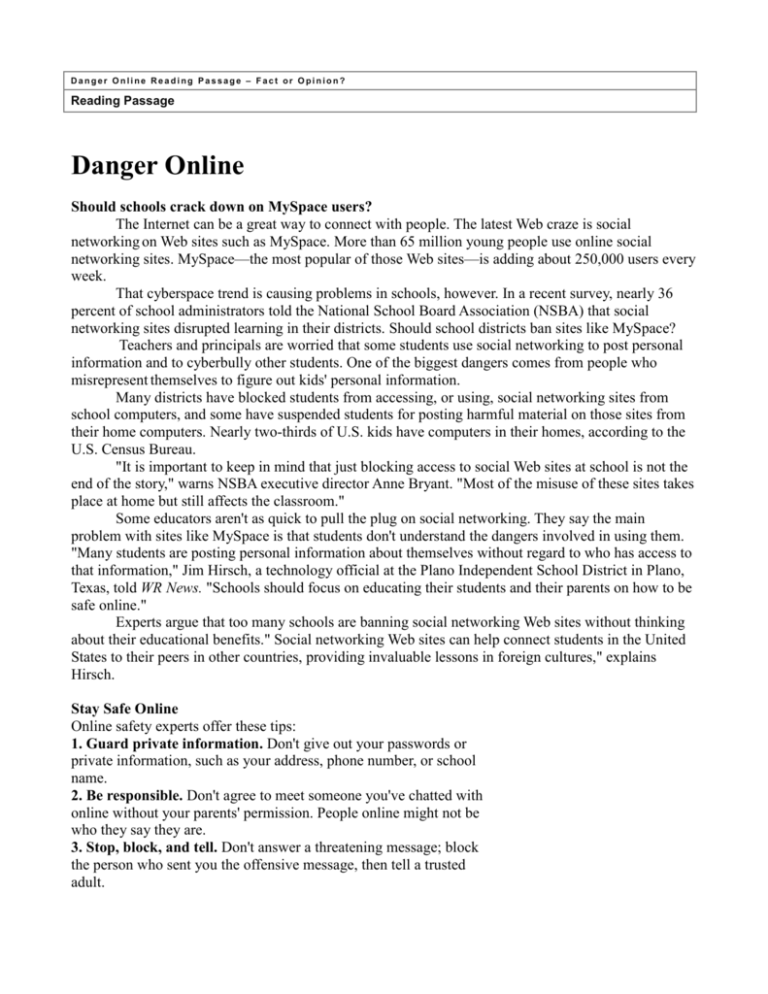
Danger Online Reading Passage – Fact or Opinion? Reading Passage Danger Online Should schools crack down on MySpace users? The Internet can be a great way to connect with people. The latest Web craze is social networking on Web sites such as MySpace. More than 65 million young people use online social networking sites. MySpace—the most popular of those Web sites—is adding about 250,000 users every week. That cyberspace trend is causing problems in schools, however. In a recent survey, nearly 36 percent of school administrators told the National School Board Association (NSBA) that social networking sites disrupted learning in their districts. Should school districts ban sites like MySpace? Teachers and principals are worried that some students use social networking to post personal information and to cyberbully other students. One of the biggest dangers comes from people who misrepresent themselves to figure out kids' personal information. Many districts have blocked students from accessing, or using, social networking sites from school computers, and some have suspended students for posting harmful material on those sites from their home computers. Nearly two-thirds of U.S. kids have computers in their homes, according to the U.S. Census Bureau. "It is important to keep in mind that just blocking access to social Web sites at school is not the end of the story," warns NSBA executive director Anne Bryant. "Most of the misuse of these sites takes place at home but still affects the classroom." Some educators aren't as quick to pull the plug on social networking. They say the main problem with sites like MySpace is that students don't understand the dangers involved in using them. "Many students are posting personal information about themselves without regard to who has access to that information," Jim Hirsch, a technology official at the Plano Independent School District in Plano, Texas, told WR News. "Schools should focus on educating their students and their parents on how to be safe online." Experts argue that too many schools are banning social networking Web sites without thinking about their educational benefits." Social networking Web sites can help connect students in the United States to their peers in other countries, providing invaluable lessons in foreign cultures," explains Hirsch. Stay Safe Online Online safety experts offer these tips: 1. Guard private information. Don't give out your passwords or private information, such as your address, phone number, or school name. 2. Be responsible. Don't agree to meet someone you've chatted with online without your parents' permission. People online might not be who they say they are. 3. Stop, block, and tell. Don't answer a threatening message; block the person who sent you the offensive message, then tell a trusted adult.
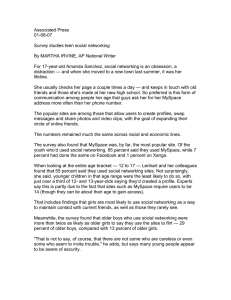
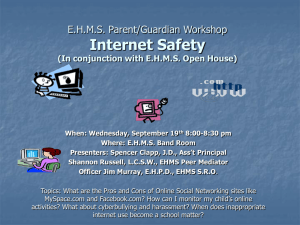
![urFooz Project brief[1]](http://s3.studylib.net/store/data/008482386_1-cebdaabc7c204938967b78be8518e462-300x300.png)
